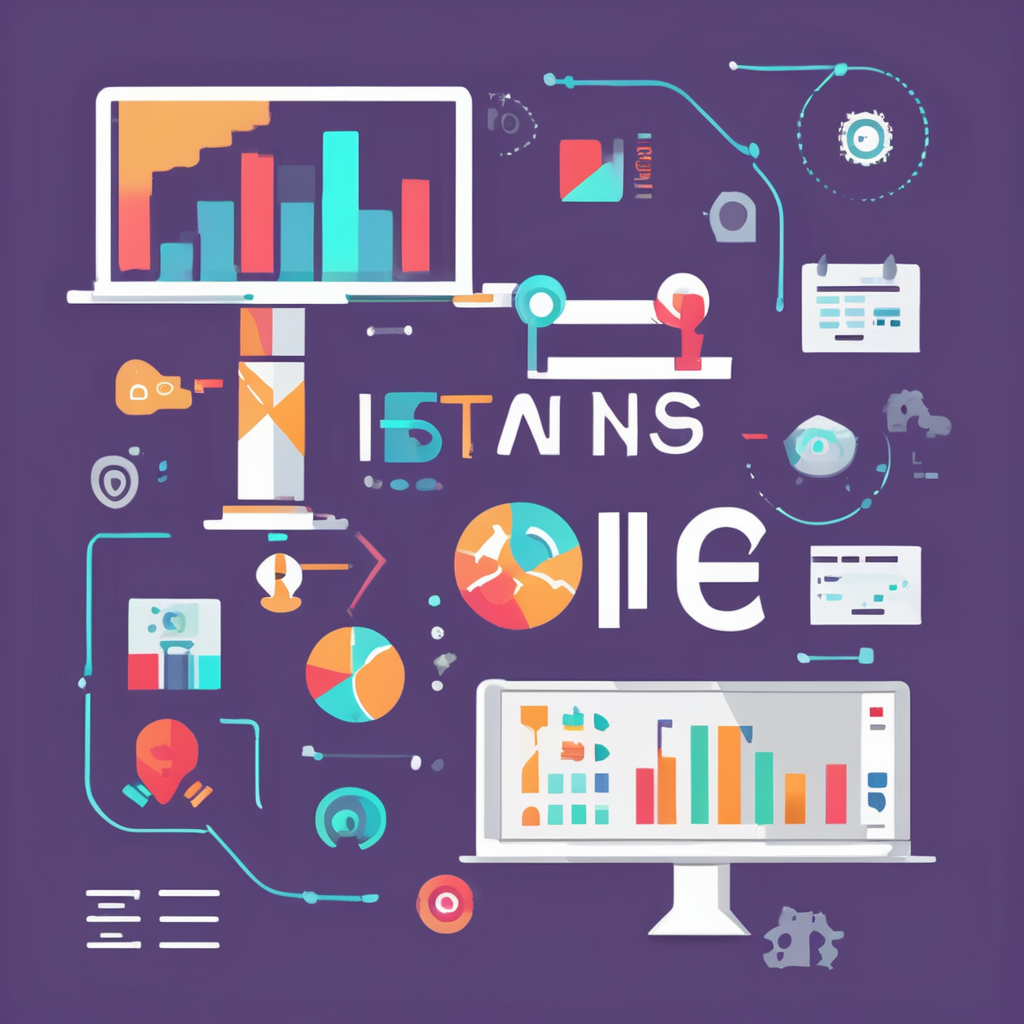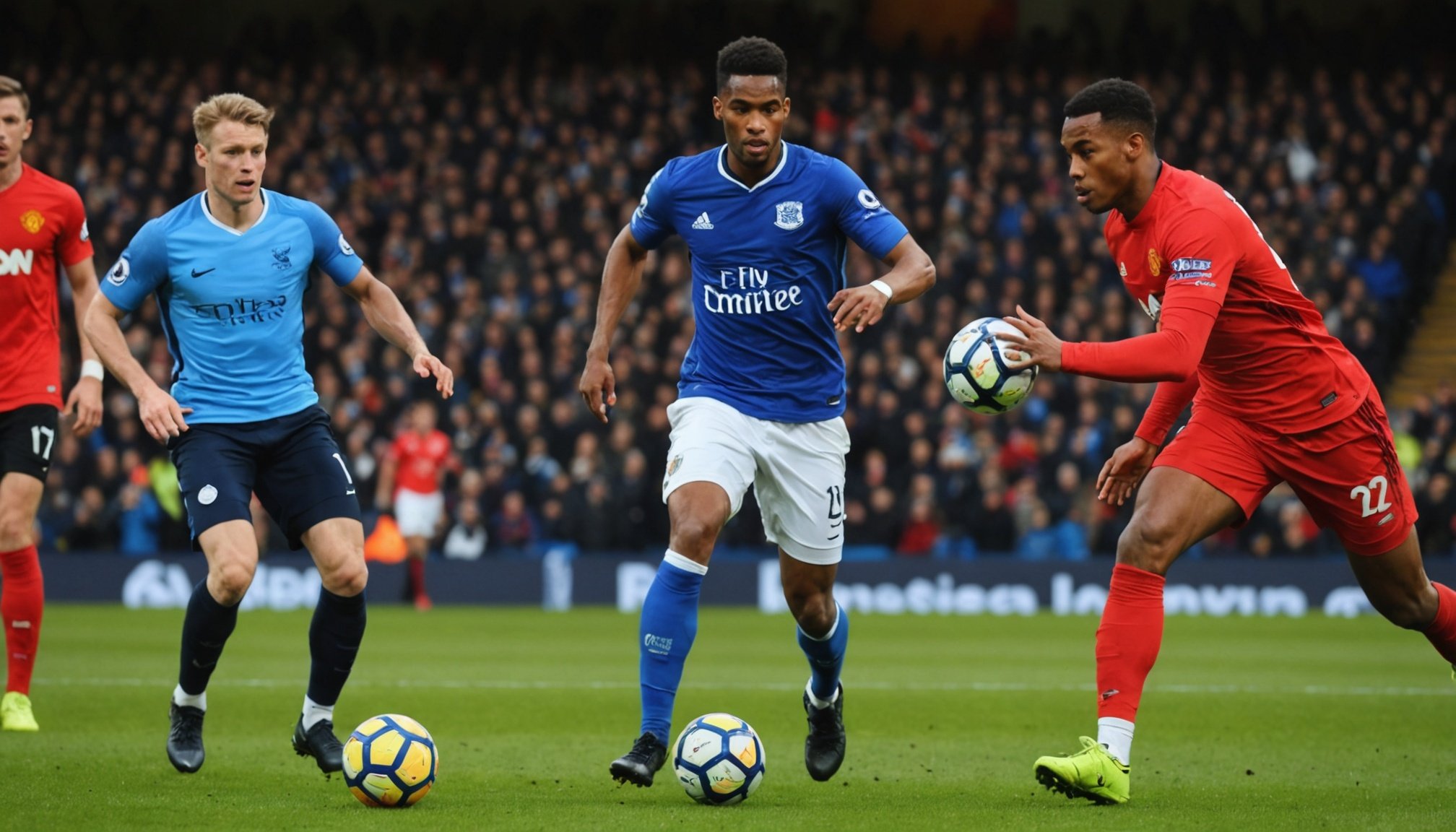Revolutionizing UK Sports: The Cutting-Edge AI Innovations Transforming Analytics
The sports industry in the UK is undergoing a significant transformation, driven by the integration of artificial intelligence (AI) into various aspects of the game. From enhancing player performance and injury prevention to revolutionizing fan engagement and sports journalism, AI is redefining the landscape of sports analytics.
Enhancing Player Performance and Injury Prevention
AI has become a crucial tool in optimizing athlete performance and reducing the risk of injuries. Here are some key ways AI is making an impact:
Also to discover : Exploring the Top AI Trends Shaping Content Creation in the UK Media Landscape
Real-Time Monitoring and Data Analytics
Teams like those in the Premier League and NBA are using wearable technology combined with AI to monitor player performance in real time. Companies like Catapult Sports provide athlete-monitoring solutions that combine GPS, inertial measurement, and heart rate data to track player load and minimize injury risks[2].
Key Benefits:
Have you seen this : Top AI Solutions to Elevate Customer Service in the UK: A Comprehensive Guide
- Injury Prevention: Real-time monitoring helps prevent overuse injuries by alerting coaches to high exertion levels.
- Training Optimization: Data on movement patterns allows for tailored training programs.
- Performance Analysis: Wearables offer metrics on speed, agility, and endurance, providing continuous feedback for improvement.
For example, Sport Lisboa e Benfica, a Portuguese football club, uses camera technology combined with AI and computer vision to track player movements during games. This data creates a digital twin of each player, allowing the team to simulate player behavior and test new strategies[3].
Predictive Analytics for Performance
AI algorithms analyze historical data to predict players’ future performance, enabling coaches to make data-driven decisions. This includes predicting player recovery timelines and match outcomes.
Case Study: IBM Watson in Tennis
IBM Watson’s AI-powered analytics have been used in tennis tournaments like Wimbledon to analyze vast amounts of data and deliver insights on player tendencies, shot selection, and match probabilities. This enhances both team strategies and the fan experience[2].
Revolutionizing Fan Engagement
AI is not only improving player performance but also transforming the way fans interact with sports.
Personalized Content and Interactions
AI-driven analytics allow for personalized content, promotions, and interactions based on fan preferences and habits. This strategy improves fan interactions, encouraging engagement and loyalty.
AI-Powered Fan Experiences:
- Chatbots: Provide real-time assistance, answering fan questions about scores, schedules, and player stats.
- Content Personalization: Curate personalized news feeds and video highlights based on fan preferences.
- Predictive Analytics: Allow fans to predict game outcomes and win rewards, creating an interactive experience[2].
Virtual Reality and Immersive Experiences
The future of fan engagement is set to become even more immersive with the integration of virtual reality (VR) and augmented reality (AR) technologies.
Future Trends:
- Expanded Use of AI in Fan Engagement: Fans can expect more personalized experiences through apps, VR, and social media.
- Interactive Content: AI can facilitate realistic and dynamic interactions between virtual characters and environments, providing players with a more enjoyable and challenging experience[4].
Transforming Sports Journalism
AI is also revolutionizing the field of sports journalism, making it more efficient and comprehensive.
Automated Sports Journalism
AI-driven platforms can convert score data into narratives using natural language processing (NLP). This simplifies the process of covering local matches without the need for officials to be present on the field.
Automated Insights:
- Syncing with Computer Vision: AI platforms perform journal score hearings intelligently, combining score data with visual insights.
- Real-Time Reporting: AI enables real-time reporting, allowing for quicker dissemination of sports news and highlights[5].
Streamlining Content Creation and Distribution
In the broader context of sports media, AI is helping organizations like Reach, a UK-based publisher, to streamline content creation and distribution.
AI Tools in Newsrooms
Reach has integrated AI tools into its newsroom processes, from content creation and editing to distribution and audience engagement. Tools like Guten and Mantis are key drivers of this effort.
Guten:
- Developed in collaboration with newsrooms, data science, and product teams to streamline tasks that slowed down journalism.
- Improved the speed of publishing breaking news from nine minutes to just 90 seconds[1].
Mantis:
- A brand safety and revenue generation tool with editorial uses, now offered as a SaaS product.
- Helps in maximizing journalists’ time by enhancing sourcing efforts and allowing reporters to focus on core journalistic duties[1].
Decision Making and Strategic Planning
AI is not just about data collection; it’s also about providing actionable insights that can inform strategic decisions.
AI in Performance Analysis and Strategy
AI systems recommend the best lineup combinations during games and make real-time tactical adjustments. This includes analyzing opponent data to identify patterns and tendencies.
Case Study: Benfica’s AI-Driven Strategy
Benfica uses AI and spatial data to gain a competitive edge. By tracking player movements and simulating player behavior, the team can test new strategies and make informed tactical decisions[3].
Future of AI in Sports
As technology continues to evolve, the role of AI in sports is expected to expand significantly.
Emerging Trends in Sports Technology
Here are some key trends that will shape the future of sports:
Table: Future Trends in AI in Sports
| Trend | Description |
|---|---|
| Expanded Use of AI in Training | AI will predict player performance, recovery timelines, and match outcomes. |
| Greater Fan Personalization | Fans will experience more personalized content through apps, VR, and social media. |
| Widespread Adoption of Wearable Technology | Wearables will become standard in amateur and youth sports. |
| Enhanced Safety Measures | Advances in helmet technology and wearable sensors will reduce injuries. |
| AI-Based Sports Betting and Predictive Analytics | AI will enhance sports betting and predictive analytics, offering more accurate game outcomes. |
| Collaboration with Sports Science and Medicine | AI will integrate with sports science and medicine to optimize athlete development. |
Technological Advancements
Companies are continuously adopting new technologies to sustain their position in the market.
Example: Epoxy AI’s Audience Cloud
Epoxy AI’s Audience Cloud technology provides critical information to gaming operators and sports media organizations, helping them understand fan behavior over time. This technology employs custom-built AI to provide a constant picture of sports fan behavior, allowing for improved sports gaming and media analysis[4].
Practical Insights and Actionable Advice
For teams and organizations looking to integrate AI into their operations, here are some practical insights:
Start Small and Scale
Begin with specific areas like player performance analysis or fan engagement and gradually scale up as you see the benefits.
Collaborate Across Departments
Collaboration between different departments, such as data science, product teams, and coaching staff, is crucial for successful AI integration.
Focus on Data Quality
Ensure that the data you are using is accurate and reliable. This is critical for making informed decisions based on AI analytics.
Be Patient and Adaptive
AI integration is a process that requires time and adaptability. Be prepared to adjust your strategies as you gather more insights and feedback.
The integration of AI in UK sports is a revolution that is transforming every aspect of the industry, from player performance and injury prevention to fan engagement and sports journalism. As technology continues to advance, we can expect even more innovative applications of AI in the sports world.
In the words of Joao Copeto, Chief Information and Technology Officer at Benfica, “What we want to achieve with technology is for the staff to use their time to analyze the game instead of using it to produce data. We want them to move to the next step. AI helps accelerate a lot of these processes.”[3]
As we look to the future, it’s clear that AI will continue to play a pivotal role in shaping the sports industry, offering real-time insights, enhancing decision-making, and providing a more immersive fan experience. The future of sports is indeed cutting-edge, and AI is at the forefront of this transformation.











